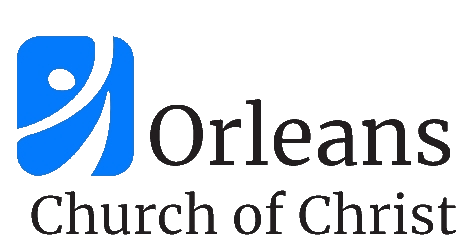Autonomy and The Lord’s Church – Part 2
Editor’s Note: This is the second in a series of articles dealing with Autonomy and the Lord’s Church. While these articles may be helpful to your study, we have also begun a series of sermons following these same thoughts. Those sermons, including charts, are available for your study via our website: www.Orleanschurchofchrist.org
&&&
Does Autonomy Permit Choices?
Sermons in bygone days often included teaching on the authority of Christ and His word and would explain the difference between “direct commandments” and “apostolic example.” Added to this discussion was the category “necessary inference” which was defined as “those things necessarily inferred to accomplish either the direct commandment or the apostolic example. While such sermons still exist, they are often not as popular as they were a few decades ago: at least it doesn’t seem we hear them as often as we used to hear them. That doesn’t make the subject of authority any less important! It suggests we need to take the time to examine it and ensure all Christians have a solid grasp on what God’s word teaches regarding authority!
Colossians 3:17 is a powerful passage and is specific in its commandment. Whatever we say or do MUST have the authority of Christ Jesus or we are in error to say or do it! Therefore, the diligent will engage in abundant study to prove all things, holding fast that which is good (1 Thessalonians 5:22). For our worship, most of us can easily prove the direct commandments to sing, pray, study, give, and communion on the first day of every week. Additionally, most of us can cite an apostolic example of each of these acts of worship. We can do the same for such commandments as pertain to obeying the gospel (hear, believe, repent, confess, be immersed, be faithful unto death adding to our faith the seven works mentioned by Peter in 2 Peter 1:5 – 11). Multiple direct commandments, apostolic examples, or both, are easily secured with scriptural proof.
It is the “necessary inference” that often poses a problem when it comes to authority. While we are commanded to sing, we have the choice of songbooks. While we are commanded to assemble, we have the choice of choosing where we will assemble. While we are commanded to assemble on the Lord’s Day to commune and give (Acts 20:7; 1 Corinthians 16:1-2), we are at liberty to set the times in which we will assemble on the Lord’s Day. Such choices are allotted to the autonomy of the local church. Further, while we are commanded to “go into the all the world and preach the gospel,” how we travel from place to place is left to our discretion: viz. walk, automobile, plane, train, boat, bicycle, horse, buggy, etc. We could go on, but the point has been made. We must handle aright the word of God (2 Timothy 2:15) as we determine direct commandments of God, proven by apostolic example before we choose how we accomplish these duties. We can NOT alter these duties (i.e., add to them or deplete from them as suits our fleshly desires) but must accomplish them as we find the example of the accomplishment. Therefore, we cannot add instrumental music to the singing, or chanting in place of prayer, entertainment in place of preaching and teaching, or meals instead of the memorial of our Lord.
More to the point, we must first understand that expedients (necessary items that permit the accomplishment of the duty) must FIRST be lawful (1 Corinthians 6:12; 10:23). Just because a congregation uses Sacred Selections for the Church as their chosen songbook, and uses multiple plates and cups for serving communion, and serves communion after the sermon and song of encouragement, and begins their Lord’s Day services at 9:00 AM, does not mean ALL churches of Christ must follow suit. Each being autonomous is at liberty to make these decisions for themselves, provided their decisions as to how they do these commanded duties are within the simplistic realm of Scripture.
Autonomy does NOT grant individual congregations to engage in activities that have neither direct commandment nor apostolic example. The apostles being a part of the foundation of the Lord’s church (Ephesians 2:20) never established an institution to do the work assigned to the Lord’s church! We must remember that fact! Further, they never established entertainment that would entice larger crowds. They used only the gospel of Christ to appeal to the souls of all. Though each congregation of the Lord’s church is autonomous, their autonomy does NOT grant the right to go beyond the limitations of the word of God! (2 John 9) We must remember the church was purchased with the blood of Jesus Christ (Acts 20:27) and is not ours! We are blessed to be a part of that spiritual body (1 Corinthians 12:27). Therefore, we are commanded to behave ourselves in the house of God (1 Timothy 3:14 – 15). Without His authority, we can do nothing. Only WITH His authority will we accomplish His will!
